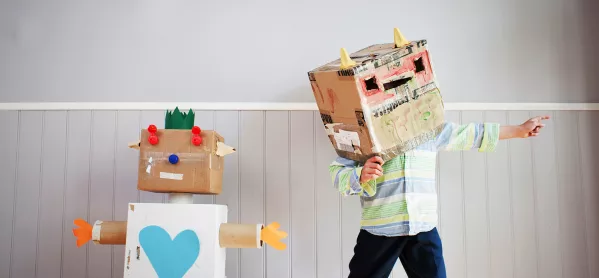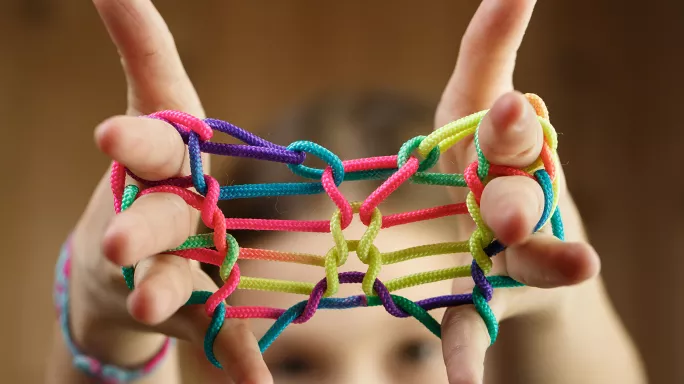- Home
- Imaginative play: what teachers need to know
Imaginative play: what teachers need to know

Work and play are complete opposites. One requires concentration, focus and productivity; the other relaxation, fun and silliness.
A child playing pretend - acting like a dragon, or a tree, or Elsa from Frozen - surely falls into the second category; they may be enjoying themselves, but they’re not likely to be making progress. Right?
Wrong, according to cognitive psychologist David Whitebread, a former acting director of the Centre for Research on Play in Education, Development and Learning at the University of Cambridge.
Quick read: Why are we so reluctant to take learning into the outdoors?
Quick listen: Learning through play: what are the benefits?
Want to know more? Playing to pupils’ strengths in the early years
Imaginative play is one of the most heavily researched aspects of children’s play, he explains, and there’s now an enormous amount of evidence suggesting that it actually helps children’s performance on a variety of tasks, including those related to memory and controlling attention.
It has also been shown to enhance language development, and help improve self- and social regulation.
So how can teachers make the most of playing pretend in their classrooms?
Don’t stress about stereotypes
There can be a huge amount of hand-wringing around the kinds of toys and props that children play with, especially those deemed to be outdated and associated with negative stereotypes, such as guns and Barbie dolls.
This has led some schools to ban such toys altogether, often sparking clashes with parents. But this approach isn’t backed by evidence, Whitebread says.
“Anecdotal reports suggest that this very rarely works,” he says. “The children acquire the toys they want in any case, and a considerable body of evidence has found no ill effects related to these toys.
“What’s more, the arguments caused by any sort of ban are potentially harmful to parent relations.”
Keep props simple
When it comes to toys and props, we can often offer the wrong things, Whitebread continues.
A pristine Batman suit with fully functioning tool belt and light-up Bat-Signal may seem like a win for getting into character during imaginative play, but realistic costumes may actually have the opposite effect.
“Props are often valued more if they very closely mimic the real costume or object being imagined, like ride-on fire engines or plastic fruit,” he says.
“However, over-realistic props, particularly anything with a battery, tend to limit the play. Instead, more basic props like sticks, bits of cloth and so on, allow more flexible, open-ended and more imaginative or creative play scenarios to be developed.”

Use it as preparation for writing
Imaginative play can also feed into other tasks, giving children the opportunity to experiment and think things through before settling down to writing, Whitebread explains.
“We have found that if, before being asked to undertake a piece of writing, children are given the opportunity to play imaginatively with related story props, or to build and discuss preparatory models in small groups, the quality and creativity of the writing is significantly improved,” Whitebread explains.
“We have also found that, in the model-building groups, the imaginative playfulness of the group is strongly associated with the quality of the children’s discussions and their social regulation of their collaborative model building.”
Get involved
“It’s often thought that adults shouldn’t get involved in play as this will ruin the children’s fun,” Whitebread continues.
“But evidence related to the quality of imaginative play suggests that it is most productive when it contains a challenge for the children, and that this is most consistently ensured by adult involvement in the children’s imaginative play.”
In fact, a study carried out by Whitebread’s research group confirmed that by the age of about six, children are able to engage in social pretend play but usually can’t maintain play where “an organised storyline is developed and where roles are assumed and sustained “.
But the involvement of an adult co-player, however, enabled them to develop this more complex and beneficial form of imaginative play.
So get involved and let your imagination run wild - your students will thank you for it.
Keep reading for just £1 per month
You've reached your limit of free articles this month. Subscribe for £1 per month for three months and get:
- Unlimited access to all Tes magazine content
- Exclusive subscriber-only stories
- Award-winning email newsletters



